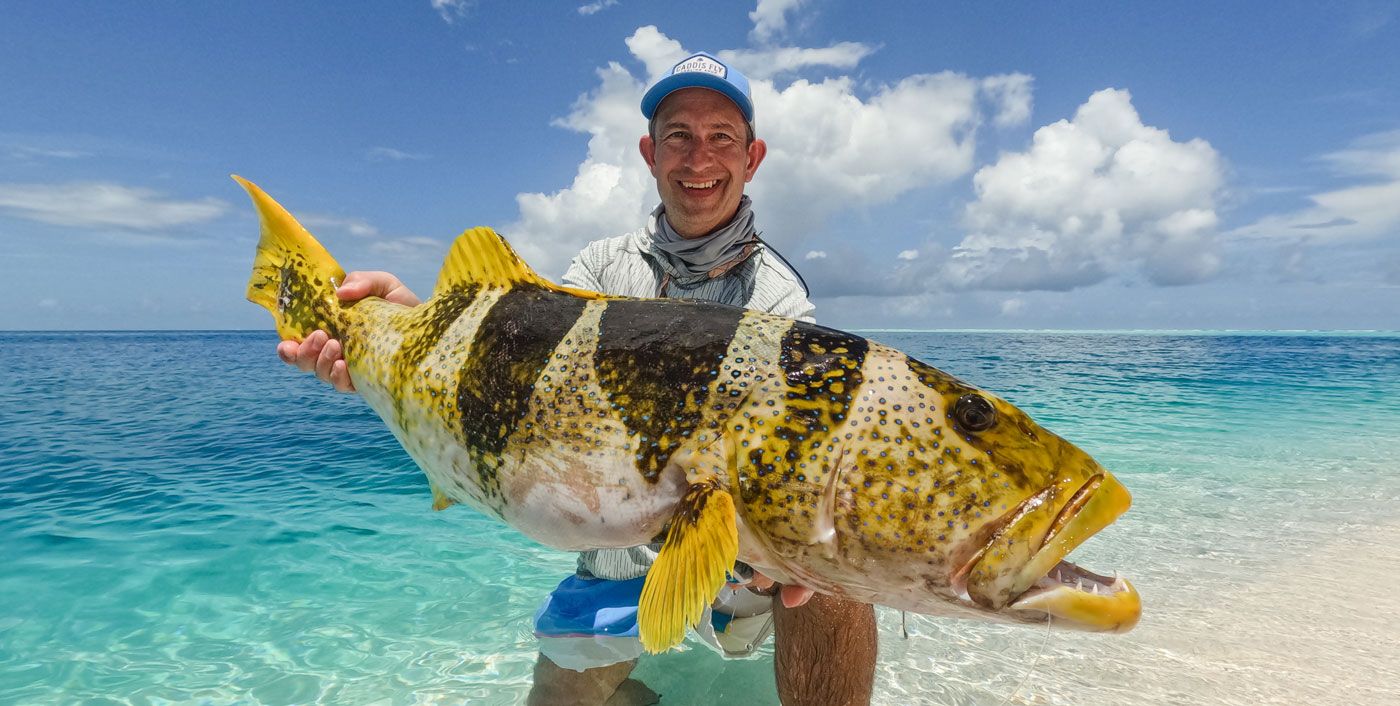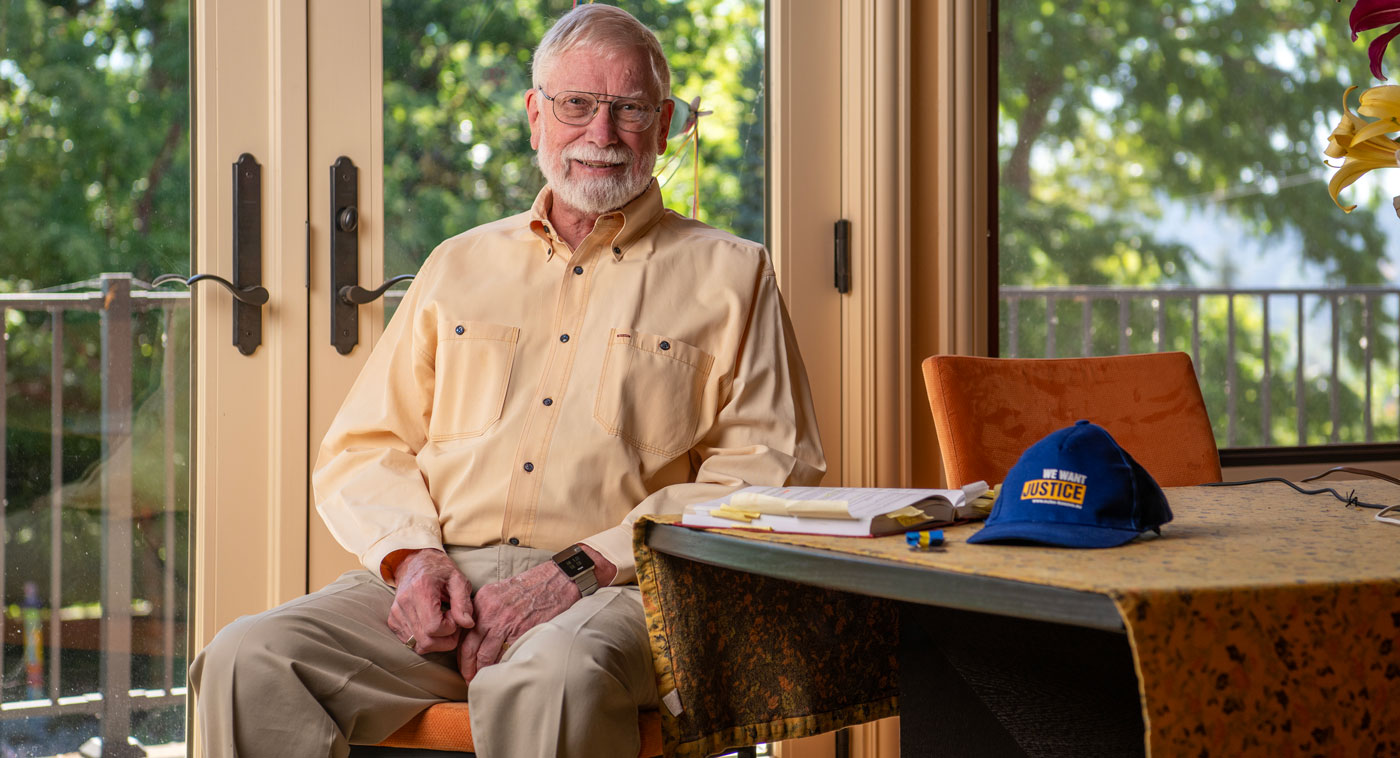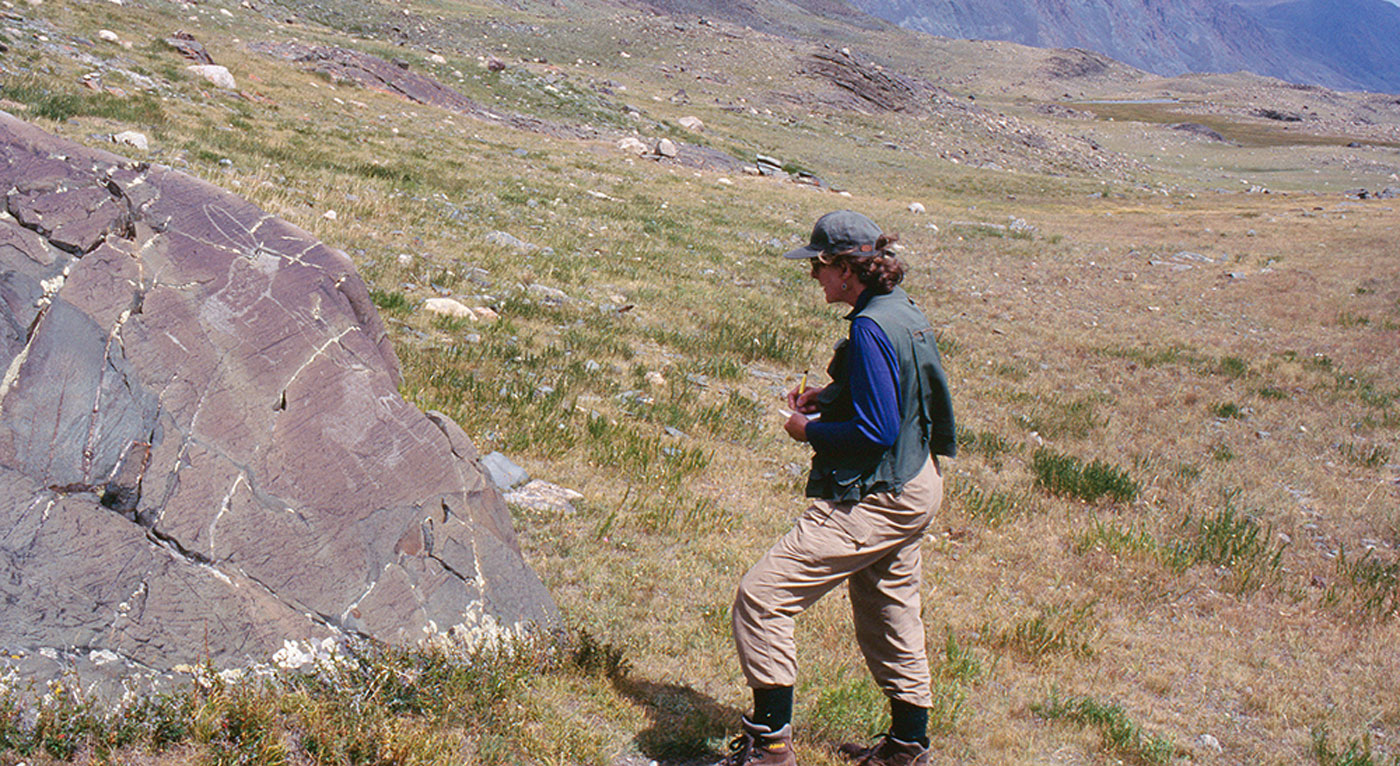Some people have careers and interests that are shaped by their passions, and others have careers that didn’t turn out the way they expected. In this article, we profile several Eugene residents who have pursued their dreams in remarkable and very different ways. From helping fish in the wilderness on horseback, to a judge, a comic studies professor, a glaciologist, a professor who studied ancient hunters and herders, and a local shop owner whose childhood interest in fly fishing has taken him from around the world, each found their calling by pursuing what fascinated them.

National Geographic Explorer & Glaciologist | M. Jackson
Dr. M. Jackson, a geographer and glaciologist, is a National Geographic Society Explorer, an Artic expert for NGS expeditions, a TED Fellow, three-time US Fulbright Scholar, a science expert in the hit Netflix series “Pirate Gold of Adak Island,” and the current Climate and Energy host for “Crash Course.” In spring, she did a national book tour for her novel, The Ice Sings Back, that follows the story of four Oregon women whose lives come together as they search for a missing child in the Three Sisters Wilderness. Jackson spends a lot of time in airports, and she also now has a 16-month-old son, so she writes in snatches of time whenever she can. “I wrote most of The Ice Sings Back on my phone,” she says. Jackson grew up in Washington and Alaska with back-to-the-land parents and no example for seeing herself as a scientist. At a young age, she worked as a backcountry guide in Alaska, and a fortuitous experience with a group of National Geographic Society birders led her, years later, to attend college to study glaciers. “I am the product of positive mentorship,” Jackson says. “And so today I spend a great deal of time today mentoring other young scientists, young writers, and young artists, because my experience fundamentally changed my life.” Jackson is motivated by being able to communicate science in a way that general audiences can understand and appreciate. Her 2015 memoir, While Glaciers Slept: Being Human in a Time of Climate Change, is a personal look at climate change through the lens of both family and the planet. Her 2019 book, The Secret Lives of Glaciers, is about the impacts of glacier change in Iceland. She recently came back from Iceland, where she was there with the National Geographic Society and the Wall Street Journal. Soon, she’ll be in Patagonia. Much of her work now is based on community education. “We find out what is happening on the ground and then figure out how to amplify that and share those stories,” she says. “I can share fun stories about the place I’m at, what the landscape looks like and why.” In Patagonia, she explores glacier recession rates and how those changes will affect the local economy’s tourism and agriculture. “Anytime you step outside of your house, whether it’s in Eugene, in Florida, South Georgia Island, Iceland, or Europe, the weather you experience is brought to you and amplified by what’s happening with our ice,” Jackson says. “And my career is trying to convince people that there’s a true connection. I want people to step out into the rain and know that a glacier is falling down on them.”

Director of the University of Oregon’s Comics and Cartoon Studies Program | Ben Saunders
Ben Saunders founded the world’s first undergraduate minor in comic studies at the UO in 2012. Saunders grew up in Wales where his grandmother would buy him American comic books. He never lost his love of comic books, and his fascination as a fan later turned into a scholarly pursuit. “The things that have a powerful impact on us as children are the things that stay with us,” he says. “Comics were not just a gateway to literacy for me but they were a gateway to a whole visual culture at a time when we didn’t all have pocket-sized computers to disappear into.” Comic books were where he first learned about the existence of New York City, for instance, and first learned to recognize art styles and artists’ names. Comics are a way to introduce study of verbal texts, art and graphic design, journalism, history, and even other languages and cultures — in fact, one colleague, associate professor of French, Fabienne Moore, teaches a class called “War in French Comics,” entirely in French for upper division French literature credit. While there have always been comics-related courses offered at universities all over the country for the past four or five decades, they’ve usually been offered in the form of cool electives. “The University of Oregon took a decisive and groundbreaking step to organize those courses into a comic studies minor,” he says. Saunders was originally hired to teach Shakespeare and 17th-century poetry, and he continues to regularly offer poetry courses, but comics studies has become increasingly central to his research and instruction. The success of the minor means that he no longer does this work alone. “My colleague, Kate Kelp-Stebbins, is to my knowledge the first person ever hired at an American research university to teach comics exclusively,” Saunders says. Mat Johnson, a New York Times–bestselling graphic novelist, joined the faculty in part because of the strength of the comic program. “Having colleagues like these really transforms what we are able to do,” Saunders says. Saunders was the chief curator for the show “Marvel Universe of Super Heroes,” which opened in Seattle in 2018 and has been shown across the US and Canada. He is also the series editor for the Penguin Classics Marvel Collection — the first comics anthologies ever published by that esteemed scholarly press. Currently, Saunders is deep into production for a Marvel-themed exhibition that will open in May 2024 in New Zealand.

Fly Fishing Around the World | Chris Daughters
Chris Daughters took a fly fishing class at the Caddis Fly Shop with his father as a child, started working there at age 12, began guiding anglers at 15, took over store management at 18, and purchased the business at age 26. Daughters grew up fishing with his father and grandfather — “It was a common weekend activity,” he says. “At 15, I took somebody down the river and they handed me three $50s at the end of the day. I thought, wow, you can get paid doing this! And I really like it. So I have gotten to do what I love to do my whole life.” Daughters still guides people down the McKenzie and Willamette rivers, but also takes people to the Bahamas, the Seychelles, New Zealand, and other fly fishing destinations through the Caddis Fly Angling Shop, which sells international fly fishing experiences around the world. Daughters says one of the most interesting places he has taken a group was to fish for peacock bass in the rivers of the Amazon Jungle in Brazil. “One reason I think I have had great success with the store and leading trips is that I’ve been on all sides of things,” Daughters says. “I’ve been a customer, I’ve been an owner, I’ve been a guide. So I understand what is needed and the pros and cons of a destination and can help guests maximize the adventure.” Plus, he has the knowledge and the gear to provide just what is needed for any environment. “I sell the tackle that guests will need to have a good time at destinations around the globe.” These treks are not for the casual fly fisherman — it can take three days just to get to the Seychelles, which is 200 kilometers north of the island of Madagascar, off the coast of southern Africa. In a place like the Seychelles, saltwater fly fishing is done on atolls, “very shallow, beautiful white sand, kind of like a sandy shelf that you can walk on, but massive,” Daughters says. “These fish are up on that shallow flat for a period because the tide changes, so you have a limited window to see these fish. It’s a mix of hunting and fishing. I love sight fishing.”

Judge and International Legal Consultant | Jim Hargreaves
For the last 20 years, retired Lane County Circuit Judge Jim Hargreaves’ business card has read “Amicus Curiae Consulting,” announcing himself as a “Friend of the Court.” In that role, Hargreaves, a Fulbright Expert in law and now a legal observer and commentator, has traveled all over the world as a national and international consultant in court and case management, working with courts in the United States and 13 different countries in Central Asia, Africa, Eastern Europe, the Balkans, the Caucasus, and South America. In 2013-14 Hargreaves, in what he calls, “the high point of my legal career,” spent a year working as a full-fledged trial judge and judge of the appellate court in the serious crimes division of the courts in the county of Kosovo. Working for the European Union Rule of Law Mission in Kosovo — EULEX — Hargreaves joined a tiny group of American judges who have the privilege of having served as a judge both in the United States and a foreign country. Hargreaves’ role as both a trial and appellate judge in Kosovo further distinguished him in that small group. Hargreaves was born and raised in Eugene, and it has been his home his whole life — except for the months and years spent wandering around the world. During his undergraduate days at the University of Oregon, he had no clear plan for his studies or a career. He admits that he went to law school at UO without a plan: “I didn’t have a clue what I would do if I simply graduated and had to go to work,” he says. Following law school, Hargreaves practiced law in Eugene for a few years and then became a Circuit Court judge for 20 years. “I got bored and left the bench in 1995,” Hargreaves says. He went to work for IBM for five years on a team doing business process change and custom software development for courts and police officers around the world. In 2000, Hargreaves struck out on his own in the court consulting world. While Hargreaves retired from consulting after judging in Kosovo, he says he still “dabbles” in it from time to time. “I put on a seminar here in Eugene for 12 judges from the country of Georgia last September,” he says. “I loved working and living in all of the different countries, but now, I hate the traveling.”

Stocking Lakes On Horseback | Becky and Matt Hope
Around 50 nearby lakes are stocked with fish by backpack crews of volunteers every other year — and on alternate years many more lakes are stocked by helicopter. Hundreds of volunteers help this effort by hiking in while carrying bags of fish and water in their backpacks. The loads can range from 37 pounds down to just a few pounds for children volunteers. One key volunteer group is the Backcountry Horsemen of Oregon, who bring fish in by horseback to the more distant lakes. Matt and Becky Hope, members of the local chapter, help coordinate these stocking trips.
Martyne Reesman is the assistant district fish biologist who coordinates the fish stocking program. “The lakes can be quite remote, with some requiring a 3.5-mile hike just to reach the lake,” says Reesman. “Each lake has its own unique challenges in terms of terrain, distance and accessibility. Some lakes you can drive right up to, but most require hiking between 1/4 and 3 miles into them to stock trout.”
Becky Hope is a dedicated volunteer who helps stock remote high mountain lakes with fish in Oregon. She and her husband got involved with fish stocking when they lived in Washington. After relocating to the Eugene area 24 years ago, they continued the lake stocking, which today they do through their work with the Backcountry Horsemen of Oregon. They use their own horses — they currently have five — to pack the fish into lakes that would be very difficult to access by foot, sometimes trekking more than 15 miles to reach the lakes. “With the horses, we can go into the wilderness and stay for three to four days or as long as 10 days,” Becky says. “We also end up doing a lot of trail work including a section of the Pacific Crest Trail that we steward, because we want to be able to go camping in the wilderness.” In 2022, the Emerald Empire chapter packed more than 6,400 fish to stock seven lakes in the North Waldo Lake area. Packing fish requires careful planning and technique, and the bags are specially prepared by wildlife staff to contain just the right amount of fish and water. The fish are placed in industrial plastic bags with water from their habitat and an ice block made from the same water to keep them cool, and the bags are topped off with a shot of oxygen for the journey.

Studying the Cultures of Hunters and Herders in Ancient Siberia and Mongolia | Esther Jacobson-Tepfer
Esther Jacobson-Tepfer joined the faculty of the Department of the History of Art and Architecture at the University of Oregon in 1966, and retired in 2011. Jacobson-Tepfer was the first person to take a scholarly interest in the rock art and surface archeology of Northwestern Mongolia. She received her doctorate in Chinese art history with a focus on paintings of the Ming Dynasty from the University of Chicago. “I enjoyed my studies very much but I was not fully convinced that I wanted a life bound to museums and libraries,” she recalls. When the opportunity came for her to participate in an early scholar exchange with the Soviet Union, she couldn’t pursue Chinese art because of the political situation between China and Russia. Instead, she dove into the rich history of Russian archaeology. Later, she returned to the Soviet Union to study the art of the Bronze Age cultures of South Siberia and the Altai Mountains. Jacobson-Tepfer’s original interest in portable art gradually shifted to a focus on rock art. “The Altai Mountains have one of the richest, deepest rock art traditions in the world,” she says. “We would constantly be astounded by the beauty of the rock art panels we would find in the mountains.” Over the course of several decades, Jacobson-Tepfer and her colleagues identified and recorded three of the oldest and largest rock art concentrations in North Asia. Jacobson-Tepfer has published numerous books about the region, and is currently preparing a large archive for the University of Oregon’s Knight Library Special Collections that will include all the materials and maps she has gathered over the decades. Jacobson-Tepfer’s work helped Mongolia successfully nominate two of its richest archaeological regions as UNESCO World Heritage Sites. This year, Jacobson-Tepfer published her memoir, Journey into Other Worlds: Discoveries at the Boundary of Russia and Mongolia, which is filled with photos taken by her husband, Gary Tepfer, as he worked alongside her in the field since 1990.


